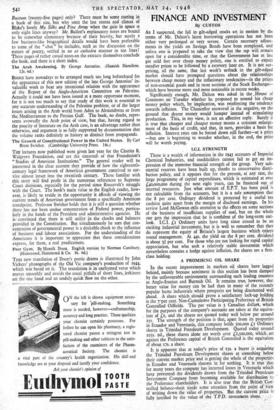Brent Swisher. (Cambridge University Press. 14s.)
THE lectures now published were given last year for the Charles R. Walgreen Foundation, and are the sixteenth of that Foundation's "Studies of American Institutions." The general reader will be interested in the clear account they provide of how the eighteenth- century legal framework of American government contrived to sur- vive almost intact into the twentieth century. Those familiar with this story will find profit in the numerous references to Supreme Court decisions, especially for the period since Roosevelt's struggle with the Court. The book's main value to the English reader, how- ever, is likely to reside in the opportunity it affords of viewing the current trends of American government from a specifically American standpoint. Professor Swisher holds that it is still a question whether there has not been undue concentration of Federal power, particu- larly in the hands of the President and administrative agencies. He is convinced that there is still utility in the checks and balances
• provided in the Constitution. But simultaneously he sees that con- centration of governmental power is a desirable check to the influence of business and labour associations. For the understanding of the Americans it is important to appreciate that these considerations express, for them, a real predicament.


























 Previous page
Previous page